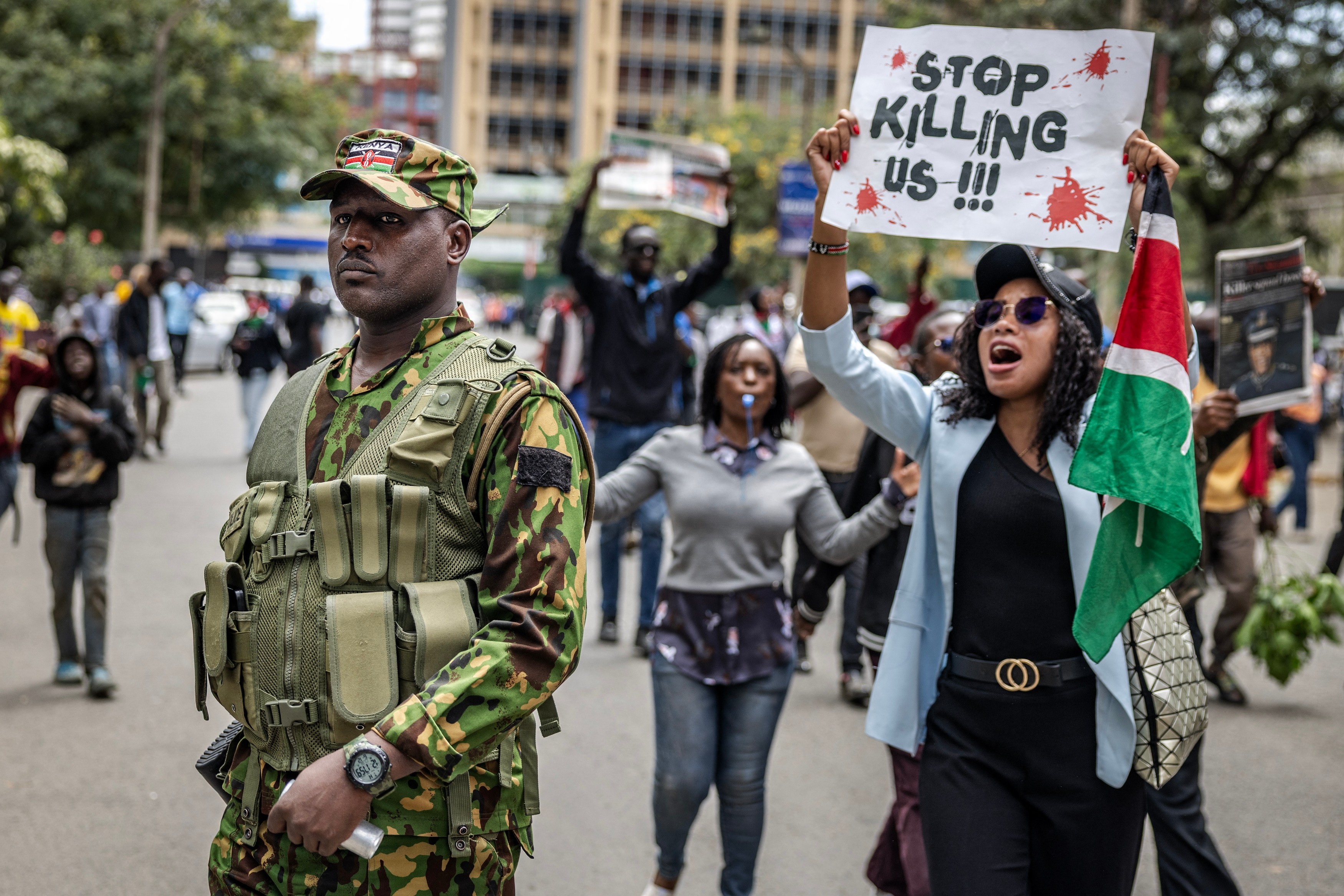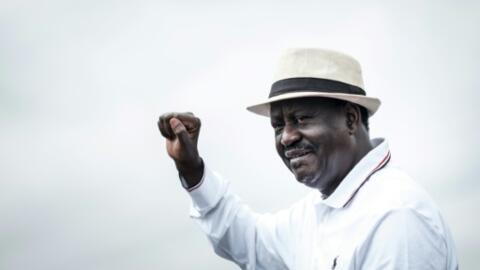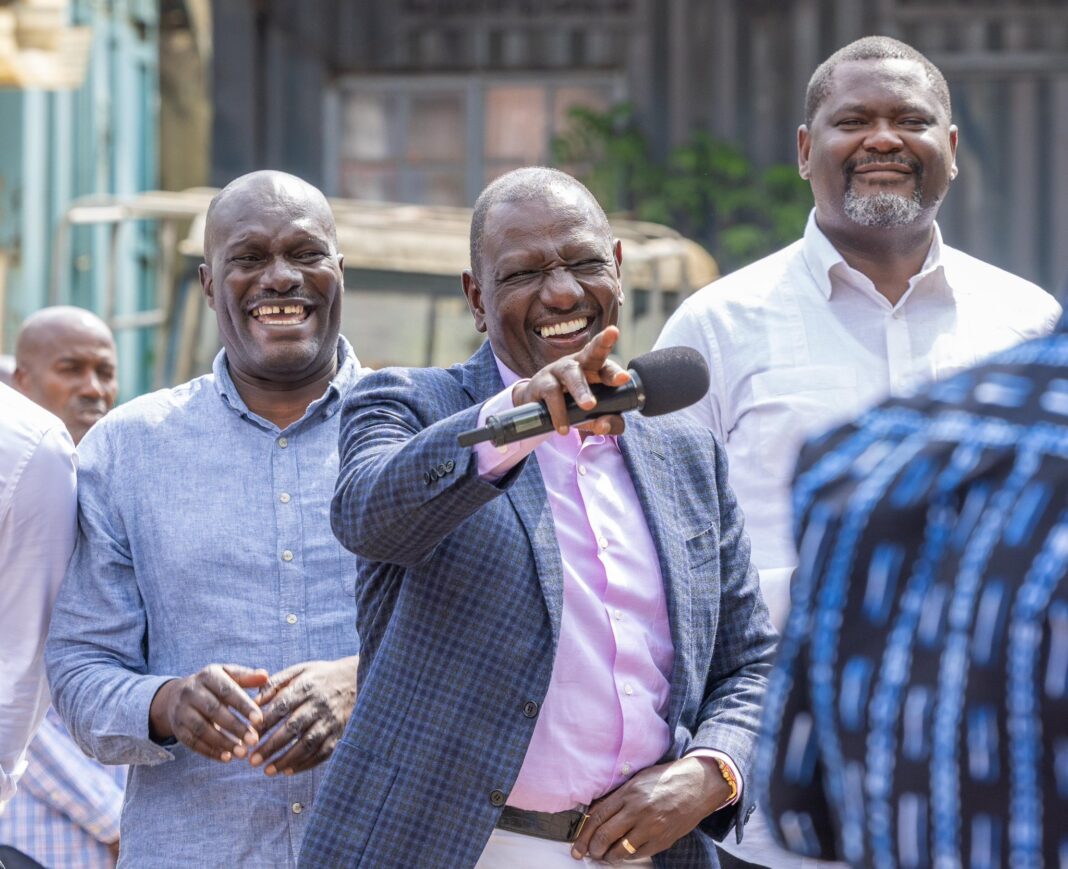
We don’t always fight for justice, sometimes we fight to replace the oppressors
My father was just a boy when the bullets flew in Kisumu. It was 1969.
President Jomo Kenyatta’s convoy had arrived in the lakeside city, and by the end of the day, Kisumu’s streets were flowing with the blood of innocent Kenyans. Murdered because Kenyatta and Oginga Odinga had an elite fallout. It’s true today as it was then, “fahali wawili wakipigana, nyasi ndo huumia,” goes the Swahili saying. The police opened fire on unarmed civilians, killing dozens. Some were shot as they ran. Others were gunned down as they tried to help the wounded.
My father has carried that day in his memory ever since. Decades later, he still dramatises the Police he saw shoot an innocent person in Korowe. His voice still quivers when he speaks of it. He is an old 75-year-old man now, but he remembers how bodies were left scattered like the dumped spoiled fruits and vegetables in Marikiti, how wails of grief rose from homes across the city, and how a deep wound settled in the hearts of a people who felt marked for state violence.
I wasn’t even old enough before I witnessed my first generation’s version of the Police brutality in 2007. What I didn’t know was that for the next three general elections, 2013-2022, some of my people’s bodies would be canvas the Police bullets would use to make a motif.
As a journalist, I witnessed that brutality most closely in 2017.
In Mathare, Kibra, Kisumu, and Busia, I documented body bags stacked like discarded furniture. I listened to young and older women recount how men in uniform raped them as their children screamed in the next room. Tear gas choked the air in the estates where children had been playing just hours before. I watched as families fled their homes because they were more afraid of the government that had sworn to protect them than they were of thugs.
And yet, in 2025, here we are.
Not even a decade later, some of the communities that once mourned their dead are strangely silent as the state trains its violence on others. Some even smirk, loudly: “Now they know how it feels.”
It makes you wonder: Were we ever fighting for liberation? Or were we simply waiting for our turn to oppress?
There’s something no one tells you about freedom.
We love to picture it as this triumphant moment, the chains falling, the sun rising, the formerly crushed finally standing tall. Cue the freedom songs and the chants. “Amandla awethu.”
But history whispers a darker truth: sometimes, when the oppressed finally break their chains, they don’t throw them away. They polish them. They memorise the manual. They learn how to fasten them snugly on the next person’s neck.
And suddenly, the only thing separating yesterday’s victims from today’s tyrants is opportunity.
This Kenyan moment reminds me of Liberia.
Between 1791 and 1804, enslaved Africans in Haiti rose against their French masters. They fought, bled, and won. Haiti became the first Black republic, and American slave owners started sweating on their verandas.
Two future US Presidents (yes, both slaveholders) began whispering in smoky rooms over their sweet tea:
“Can free Blacks coexist peacefully with whites?”
“What if they ruin our profitable little plantation system?”
Their solution? Pack them up and send them “back” to Africa. Never mind that most had never been there.
Thus was born the American Colonisation Society (ACS) in 1816. It secured land in West Africa, called it Liberia (from “Liberty”), and even named its capital Monrovia after President Monroe. Nothing screams freedom louder than naming your new home after the guy who shipped you off.
Over the decades, around 12,000 freed African Americans were sent to Liberia. And when they arrived? They built a mini-America.
Same flag (just fewer stars). Same hierarchy. Same settler economies. And most tragically, they began oppressing the indigenous people they found there.
Locals were looked down upon, excluded from power, and turned into second-class citizens in their land. Some Americo-Liberians allegedly even colluded with mild slave traders, selling locals into slavery.
It’s as if their motto was: “Do unto others as others did unto you.”
Paulo Freire warned us:
“The oppressed want at any cost to resemble the oppressors.”
And boy, did they ever.
Kenya’s own story feels eerily similar.
The people who once wore the visible scars of state brutality while trembling under it, some of whom buried loved ones after protests, are now strangely quiet as the state turns its violence on others.
Many even chuckle: “This is what they used to cheer for. Let them taste it.”
We sing ‘Vengeance is mine, says the Lord,’ on Sunday, but spend Monday sharpening knives for our enemies, as if God needs volunteers in the revenge department.
But isn’t that the whole point? That no one should have to “taste” it ever again?
Freire nailed it again:
“The oppressed, having internalised the image of the oppressor and adopted his guidelines, are fearful of freedom.”
Because true freedom is not about swapping roles. It’s about burning the whole playbook.
On April 12, 1980, in Liberia, Master Sergeant Samuel Doe, a 28-year-old indigenous Liberian, stormed the Executive Mansion. He murdered President Tolbert, an Americo-Liberian, and dragged his body through Monrovia’s streets.
Tolbert’s cabinet, mostly returnees, were lined up on a beach and executed.
Liberia descended into a 13-year civil war marked by child soldiers, mass atrocities, and over 250,000 deaths.
This is what happens when oppression becomes a revolving door.
In Kenya, we don’t need a coup to know where this road leads. The state is already a monster that eats its children. And if those who once cried for justice now justify the monster’s fangs, because this time it’s biting someone else, who will be left to cry for the next victims?
I think of my father, now an old man, still haunted by the Kisumu massacre he witnessed as a boy. I think of the women in Mathare who showed me scars they never asked for. I think of all the times we said, “Never again.”
And yet, somehow, we are here again, choosing which injustices deserve our outrage and which ones we can quietly excuse because they don’t touch us directly.
But oppression doesn’t work like that. Injustice anywhere is a threat to justice everywhere. We don’t get to cherry-pick whose pain matters and whose doesn’t.
If we stay silent when others are crushed, we are simply rehearsing for our turn on the floor.
Solidarity isn’t charity; it’s survival. It’s the only tool strong enough to dismantle the very systems that will one day turn on us, too.


